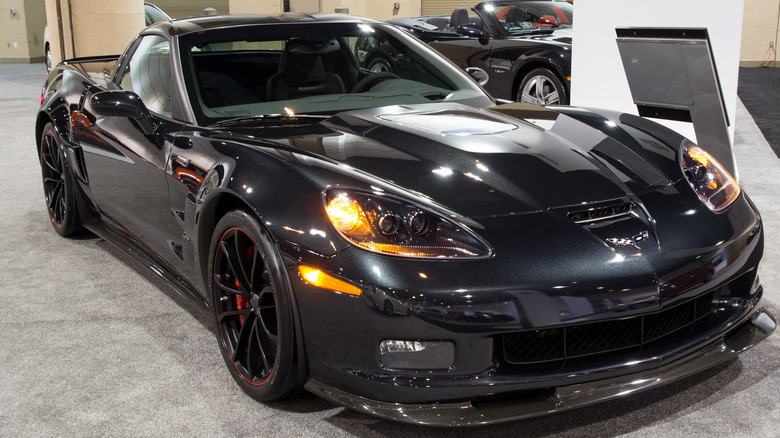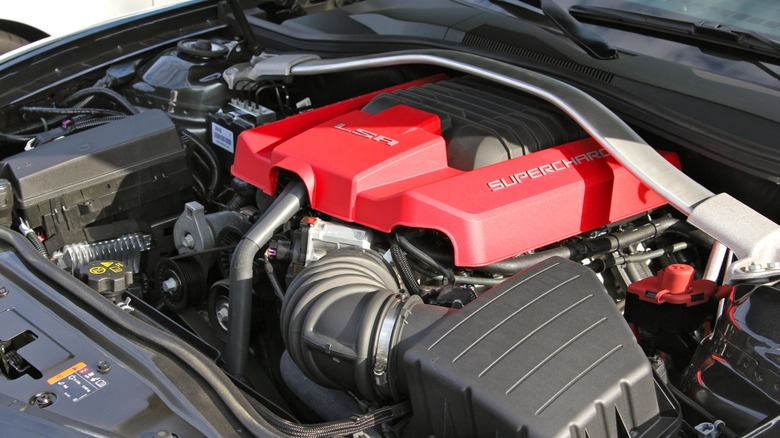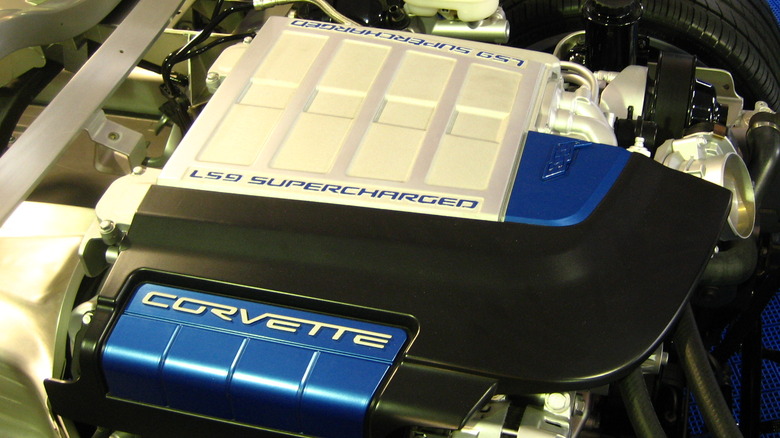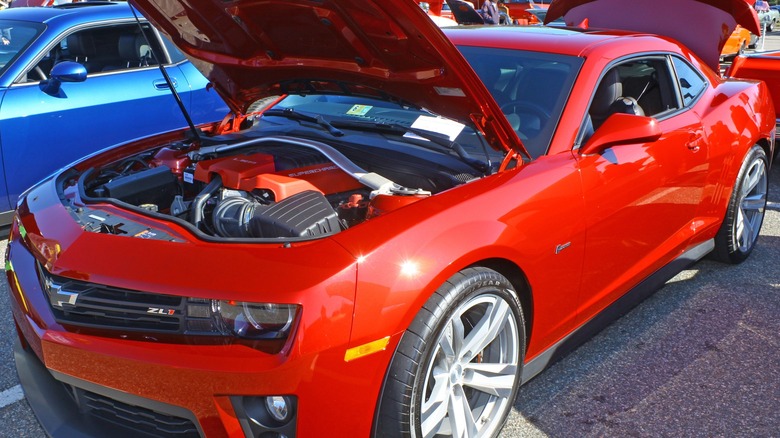GM's LS9 Vs. LSA Engine: What's The Difference & Which Is Better For Your Needs?
As members of the fourth-generation General Motors small block engine lineup, the LSA and LS9 variants share many similarities. In addition to their rugged reliability, pushrod-operated overhead valves, and 4.40-on-center cylinder bore spacing, the two supercharged engines share an LS design feature that allows them to handle substantial horsepower and torque.
That feature is their aluminum engine block construction, providing the strong base upon which several generations of General Motors LS engines have relied. Their reliability and potential for massive horsepower make the LS engine swap a popular option for gearheads. However, the LSA and LS9 variants' high cost and large size put them on the lower end of swap desirability.
On the brighter side, if you're looking for a unique engine swap that'll stand out from the crowd and provide massive power, an LSA or LS9 could be what you need. Let's look at each option to help you decide which one suits your build better.
The supercharged 6.2-liter LSA explained
The General Motors supercharged 6.2-liter small block LSA debuted in 2009 for the Cadillac CTS-V lineup. The LSA V8 was originally available in CTS-V sedans, coupes, and wagons and used in Chevrolet Camaro ZL1 coupes and convertibles starting in 2012. Cadillac discontinued its use after 2015, with Chevrolet also dropping it from the Camaro option list following the 2015 model year.
The CTS-V and ZL1 engines were identical in pretty much every way, using the same 1.9-liter-per-revolution supercharger with single integrated coolant-to-air intercooler, aluminum engine block, nodular iron main bearing caps, forged powder-metal connecting rods, and cast aluminum pistons. While both versions have a 6,200 rpm redline, the Cadillac's LSA made 556 horsepower compared to the Camaro's 580 hp and produced 551 lb-ft of torque compared to the ZL1's 556 lb-ft.
[Featured image by Sh4rp via Wikimedia Commons | Cropped and scaled | CC BY 2.0]
The LS9 is more powerful than the LSA
General Motors designed the LS9 for the 2009 Chevrolet Corvette ZR1 and continued its use in the ZR1 through 2013. Being destined for use in GM's flagship Corvette, it's no surprise that the LS9 received an infusion of premium components during its assembly in Wixom, Michigan.
The LS9 features an aluminum block and cylinder heads, a dry sump engine oiling system, and stainless-steel exhaust manifolds. In addition, the LS9 uses 2.16-inch titanium intake valves, 1.59-inch diameter hollow-stem, sodium-filled exhaust valves, and a forged steel crankshaft. Supplementing the LS9's free flowing exhaust is the 2.3-liter-per-revolution supercharger with dual integrated coolant-to-air intercoolers. With its increased rpm redline, the ZR1 LS9 makes 638 horsepower at 6,500 rpm and delivers 604 lb-ft of torque at 3,800 rpm.
Ultimately, the Corvette ZR1 LS9 produces an additional 58 horsepower compared to the Camaro ZL1's LSA and 82 hp more than the Cadillac CTS-V. The LS9 carries a similar advantage over the LSA when comparing torque production, with 48 lb-ft more torque than the ZL1 and 53 lb-ft more than the CTS-V.
[Featured image by The359 via Wikimedia Commons | Cropped and scaled | CC BY-SA 2.0]
Which LS engine should you pick?
While the LS9 and LSA 6.2-liter supercharged V8s share a similar footprint front to back and side to side, if you're able to find a Corvette ZR1 donor, the dry sump oiling system allows placement into a lower deck height engine bay. The LS9's use of titanium components makes it a bit lighter, and it enjoys a substantial advantage in horsepower and torque compared to the otherwise sporty LSA.
In the absence of a ZR1 or CTS-V donor, Chevrolet still offers the LS9 as a factory crate engine. It's currently listed at an MSRP of $21,403 on the Chevy site, though price and availability may depend on your local dealer access.
While availability of either supercharged 6.2-liter isn't guaranteed, Chevrolet lists the LSA as discontinued. The good news for those opting to go with the LSA is that its still listed on some reseller sites, like Boost District, where it has a price tag of $18,980 and includes GM's 6L80-E automatic transmission. That could save you thousands of dollars compared to the LS9 crate engine from Chevrolet, though Boost District does say to "call for availability." However, if your budget allows the LS9 option for your swap, then more power is always better, right?



